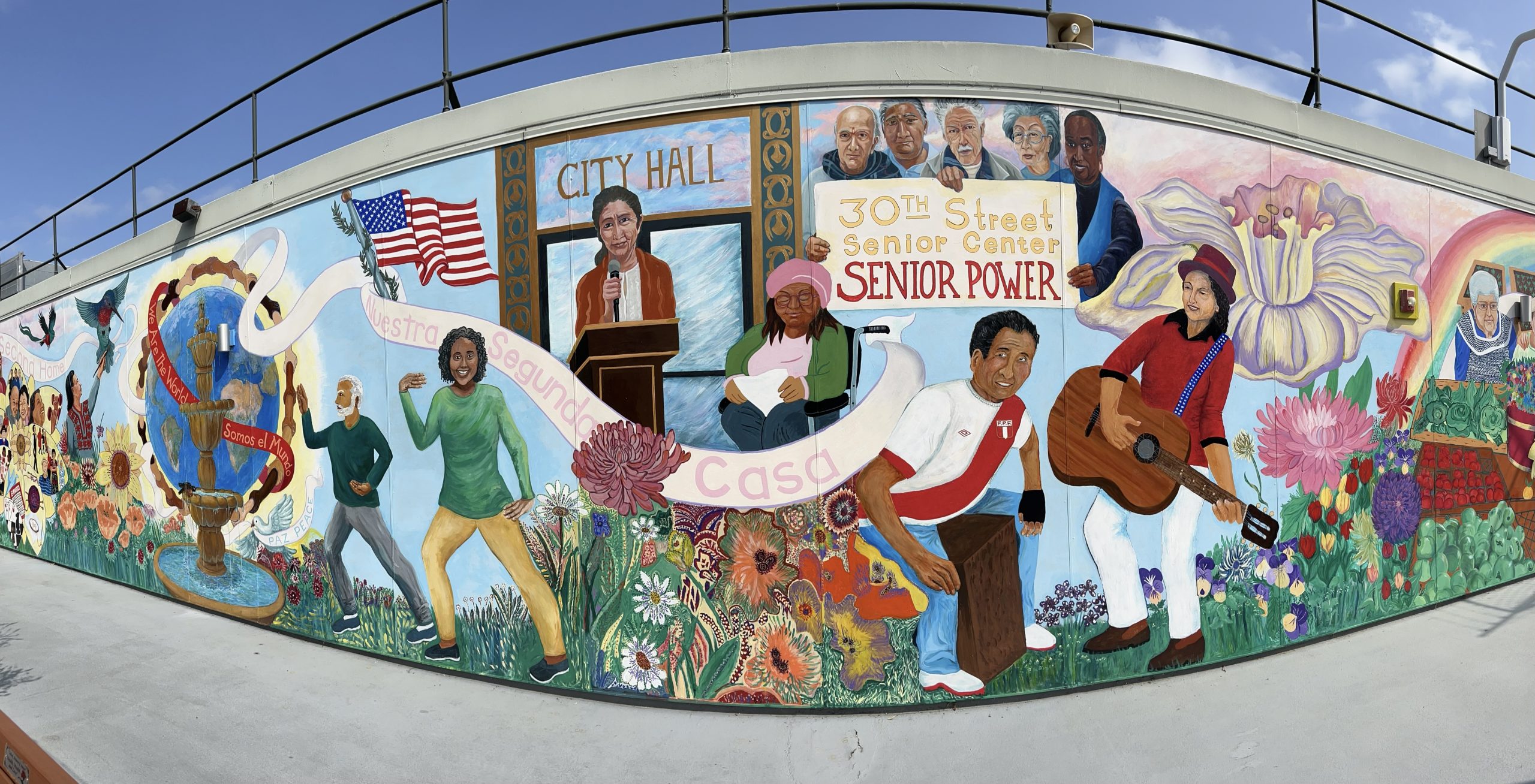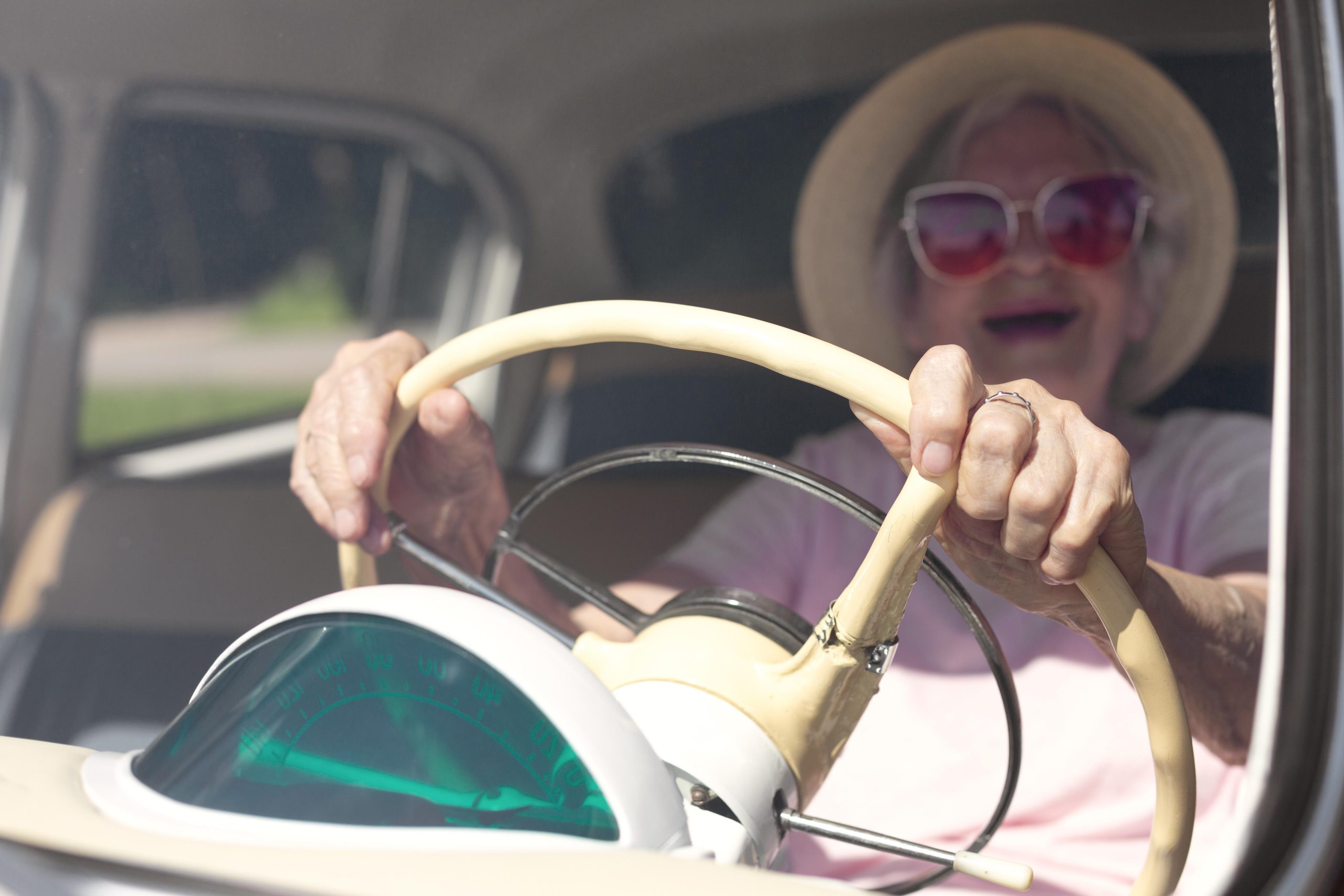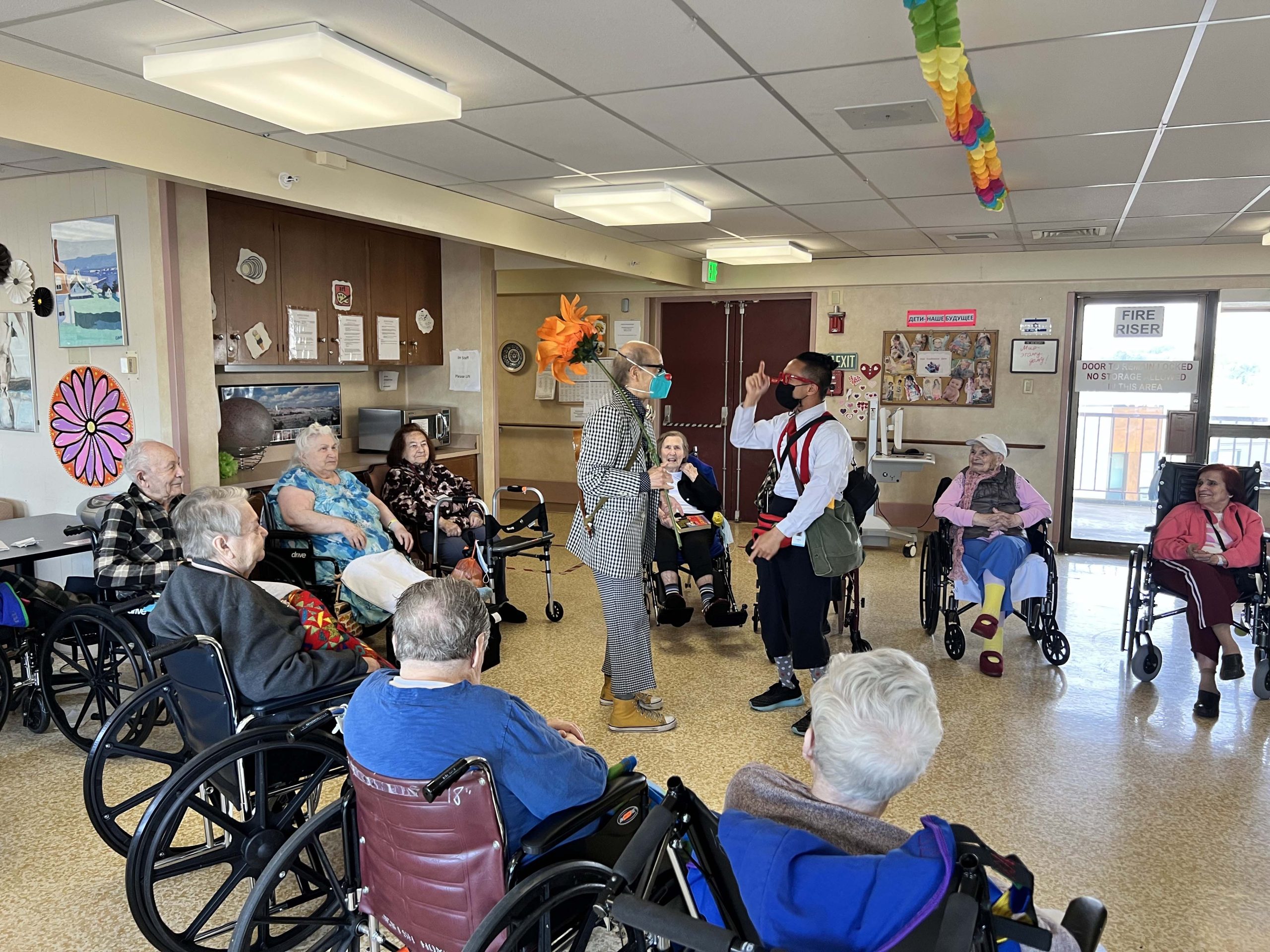Senior center in the cloud creates family of friends across 41 states
Thursdays are Nicolette Noyes busiest days. She’s on the phone from noon to 7 p.m. And when she’s not at home, she’s listening all day.
“I listen in the car. I hear it in the background when I’m folding laundry or just doing stuff around the house, said the San Francisco senior.
You could say she’s “Well Connected.” Formerly called Senior Center without Walls, Well Connected is a free, national membership program for older adults that offers virtual conversations through lectures, classes and interest and support groups 365 days a year – by phone or online. Most classes last 30 minutes to an hour. Small classes – frequently no more than 12 members – encourage conversation. Registered members can even choose to lead their own groups or classes.
Director Amber Carroll said the program is committed to a focus on aging that builds on the positive rather than being “deficit-oriented.”
“We leverage the time, passions, and skills of people 60 and older to both participate and facilitate the bulk of our activities.”
Group focuses on gratitude
Noyes heard about the program while volunteering for the Lighthouse for the Blind, which she joined when her father began losing his vision. “I always wanted to read aloud to the elderly. She added brain games and eventually saw they were making a difference. “Their memories were improving or at least they weren’t getting worse
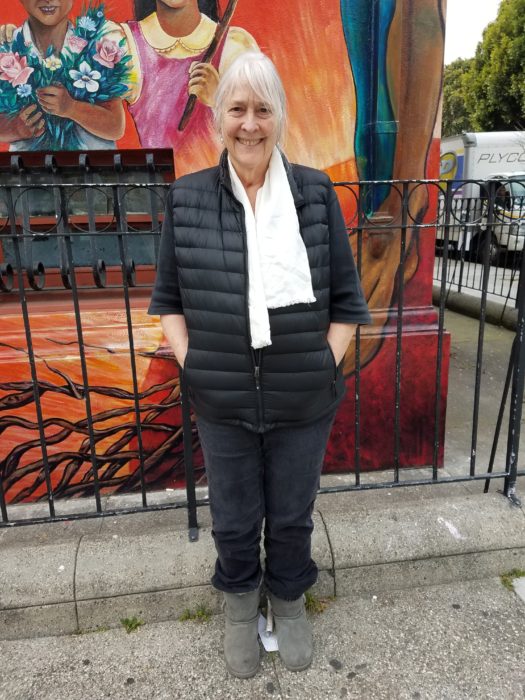
Noyes called in to listen to Well Connected programs on weekends, but soon she began listening for several hours nearly every day. After a while, a friend asked her to facilitate her “gratitude” group. “After I led it a few times, I began feeling comfortable, so I asked to lead my own gratitude group on Thursday afternoons.” Like the name suggests, participants in gratitude groups give thanks for the good things in their lives – their families, friendships, even the weather.
No matter what city or state they live in, participants eventually become like one big family, she said.
“Even though I have family and a lot of people around, I feel let down when Well Connected isn’t on the air. These are the people I connect with, maybe even more than my family.
“Sometimes new members complain of feeling like a stranger. I tell them, ‘very soon you’ll feel the same way. We are a big family and you’ll be part of it.’”
Limited vision is no limit
Well Connected serves 1,442 members across 41 states. Almost three-quarters of members are from California; from 2004 to 2015 it was only available here. Materials in large print and Braille as well as audio help the more than 40 percent of members who have limited vision.
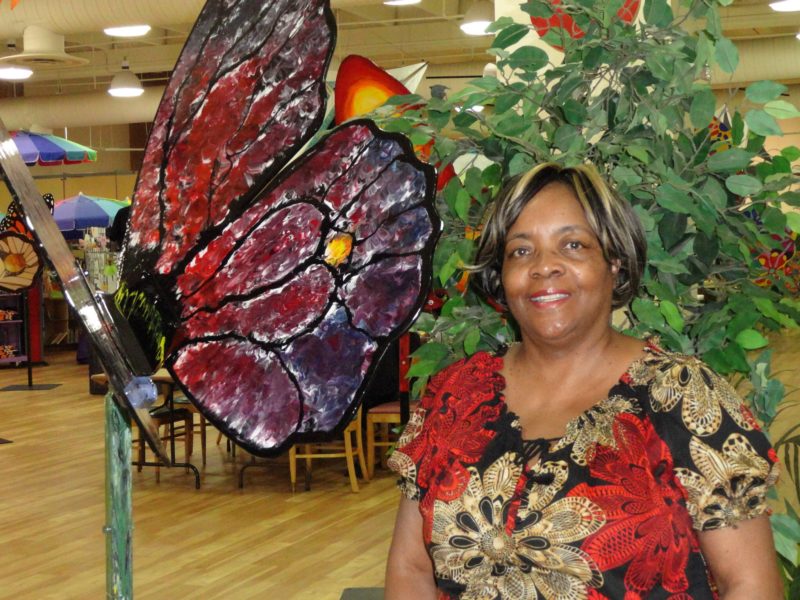
That was important for Sandy Bailey, who lives in Colorado. One September morning in 2013, after a week of intense headaches, Bailey woke in the hospital to discover she couldn’t see. Well almost couldn’t see. She still had partial vision in one eye. Bailey had suffered a pituitary tumor.
“While not blind, I have to turn my head if I want to see anything out of my left eye, the eye that has partial vision; sometimes I’m surprised and bump into things – like a mailbox I hadn’t noticed. The hardest is not being able to drive,” she said. “It is by the grace of God that I have enough vision to function. My neurosurgeon said as much because he told me after the surgery that I should be totally blind!
No transportation problems
It was a week before the start of the semester at the community college where Bailey chaired the computer technology department. “I gave notice and immediately began looking for a support group. I knew I needed to be with other people like myself, I couldn’t do this alone. I was also concerned about being home with my husband all day.”
Fortunately, finances were less of an issue: Bailey was months from retirement. After a brief period on disability, her pension kicked in.
Bailey soon found a local support group for the vision impaired. She attended the group and its offshoot for over three years, but getting there proved a problem. “Either my husband had to drive me to the group and wait around till it was over, which didn’t seem right, or I had to pay for paratransit.”
One day, while reading a newsletter from Colorado Talking Books, Bailey saw an announcement for a viral support group for people with low vision. She immediately joined and has been a member of Well Connected ever since.
“I’m not lonely anymore,” she said. “Well Connected is my support group. People from all over – Colorado, California, Washington, Chicago – participate in Well Connected. So many of my friendships are long-distance now.”
Intellectual stimulation
So many, but not all. Bailey also visits the local senior center twice a month and attends monthly meetings of the National Federation for the Blind. “I’ve learned how to take advantage of the resources around me, and want to share what I learned.”
She’s also reaching out to others with visual impairment. “I give them my business card and encourage them to call her with questions. I sometimes mention Well Connected, but most of them start out wanting to be with other people. I understand that, I did too.” As for being lonely, Bailey said, “I’m so busy, I don’t have much time for myself.”
A recent participant survey by Well Connected revealed that 47 percent of members participate weekly; 28 percent participate daily. Members value the intellectual stimulation (83%), social connections (76%), feeling valued (66%), improved mental health (63%), learning about critical resources (51%), and 35 percent believe it improved their physical health. Sixty-four percent believe it helped them remain independent.
For more information or to join, call 877-797-7299, or go to https://covia.org/services/well-connected/



